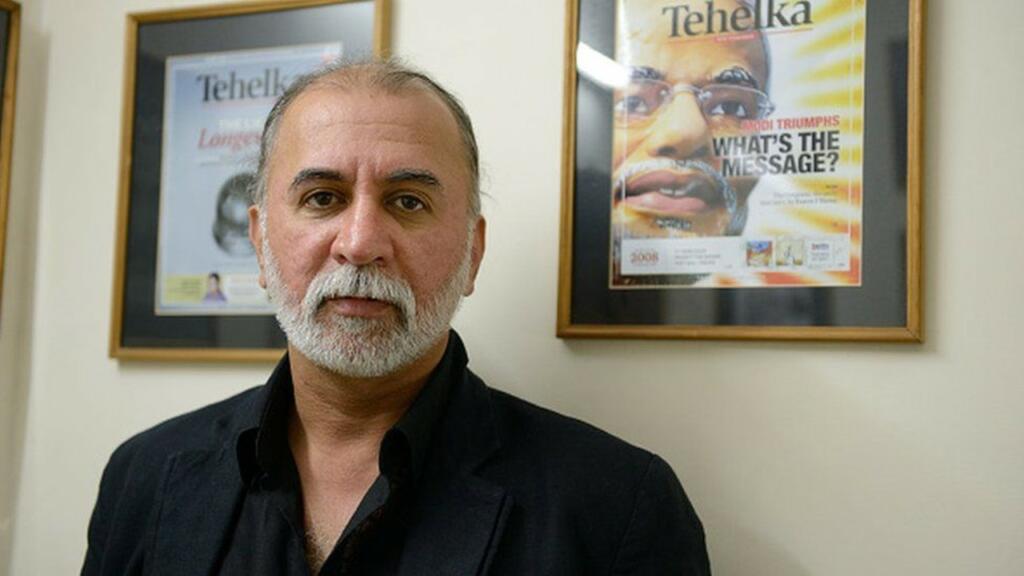“You are free to choose, but you are not free from the consequences of your choice”
Karma has its own ways of getting back. Tarun Tejpal learnt it the hard way as The Delhi High Court ordered him of late to pay 2 crore rupees in retribution to Major General MS Ahluwalia [Retd.], whose life and his career was destroyed by Tarun’s promiscuous journalism.
The Emergence of Tehelka and “Operation West End”
Founded in 2000 by Tarun Tejpal and Aniruddha Bahal, Tehelka initially aimed to be a fearless and investigative journalism-oriented tabloid. The magazine garnered attention for its explosive reporting on the Match Fixing Scandal, which involved cricket players and bookies. This investigation catapulted Tehelka into the limelight and established it as a force worth reckoning in the media landscape.
Also read: The legal legacy of ‘midnight bail receiver’ Teesta Setalvad’s family
The turning point in Tehelka’s trajectory came with the infamous “Operation West End” in 2000, where the magazine sought to expose corruption within the Indian defense establishment. Posing as arms dealers, Tehelka journalists used hidden cameras to trap politicians, bureaucrats, and military officers accepting bribes in defense deals.
The Darker Shades of “Tahalka” journalism
Let’s talk about the case in particular. In 2002, Major General MS Ahluwalia filed a defamation case against Tehelka and its journalists, including Tarun Tejpal, Aniruddha Bahal, and Mathew Samuel. The magazine had accused him of accepting bribes in defense deals, leading to his court-martial by the Indian Army. The fallout from this episode revealed Tehelka’s lack of journalistic ethics and integrity in framing its subjects.
Also read: Once upon a time, these were legends. Now, they’re just a bunch of losers
As a result of the false allegations against him, Major General MS Ahluwalia was court-martialled by the Indian Army with the recommendation to dismiss him from service. Later, the punishment was downgraded, and he was awarded “Severe Displeasure (Recordable)” by the army chief. This incident further damaged Tehelka’s credibility and exposed the magazine’s lack of journalistic rigor and accountability.
While the sting operation did uncover some unsavory truths about corruption, the methods employed by Tehelka, such as using women, liquor, and money to entrap individuals, raised ethical concerns. Critics accused the magazine of crossing ethical boundaries and indulging in entrapment journalism rather than unbiased reporting. We haven’t begun on the way they aimed to be the judge, jury and executioner in the Gujarat riots case.
Skeletons tumble
As Tehelka gained notoriety, dark secrets started emerging. It all began with Raman Kripal, a senior editor of Tehelka, who accused the magazine of suppressing a report that was unfavorable to the Goa mining industry. Allegedly, Tehelka wanted Congress-led Digambar Kamat state government’s support for the Tejpal-owned and profitable “Think Fest” event in Goa. Tejpal defended Tehelka, stating that Kripal was “asked to leave because of poor performance.”
The role of mining groups placing advertisements and sponsoring Tehelka events during the time when the unfavorable report was suppressed raised questions about the magazine’s objectivity and financial interests. These incidents indicated a disturbing trend of compromising journalistic integrity in favor of personal gains and appeasing powerful interests.
The final nail in the coffin
The final nail in the coffin of Tehelka’s credibility was the shocking revelation of sexual assault allegations against Tarun Tejpal in 2013. A fellow journalist accused him of sexually assaulting her during a Tehelka-sponsored event. The incident received intense public attention and invited media scrutiny of Tehelka’s ethical standards.
However, this was only the beginning, Tehelka’s previous emphasis on women’s rights and victim advocacy was exposed as hollow when the magazine attempted to discredit the victim and tarnish her reputation. Emerging reports of Tarun and his colleague, Shoma Chaudhary trying to scare the victim into silence caused a furore throughout the nation. This glaring contradiction in the magazine’s conduct further eroded public trust and raised questions about the genuineness of its purported commitment to ethical journalism.
#Breaking Delhi HC orders journalist Tarun Tejpal, news platform Tehelka and two reporters to pay ₹2 crore in damages to Maj Gen MS Ahluwalia for defamation.
Order comes 22 years after Tehelka carried a sting operation saying that Ahluwalia was involved in corruption in the… pic.twitter.com/6LRYFF1Xqs
— Bar and Bench (@barandbench) July 21, 2023
The sexual assault allegations against Tejpal led to his arrest, trial, and subsequent acquittal on spurious grounds in a local court. However, the damage to his reputation and that of Tehelka was irreversible. The incident highlighted the culture of silence and lack of accountability prevalent in many media organizations.
Fixers getting a taste of their own medicine
Tarun Tejpal and Tehelka’s rise and fall serve as a cautionary tale for the Indian media landscape. Their pursuit of sensationalism and personal agendas over ethical journalism led to irreversible damage to their reputation and credibility. As Ravish Kumar shamelessly calls journalists with a different perspective as “Godi Media”, he conveniently chooses to brush such “fixers” under the carpet.As the Indian media continues to evolve, it is essential for journalists and media organizations to uphold the highest standards of integrity, transparency, and accountability. The pursuit of sensationalism may bring short-term fame, but it is the pursuit of truth and ethical journalism that will earn the trust and respect of the audience in the long run. Only then can the media truly serve as a watchdog of democracy and an agent of positive change in society.
Support TFI:
Support us to strengthen the ‘Right’ ideology of cultural nationalism by purchasing the best quality garments from TFI-STORE.COM
